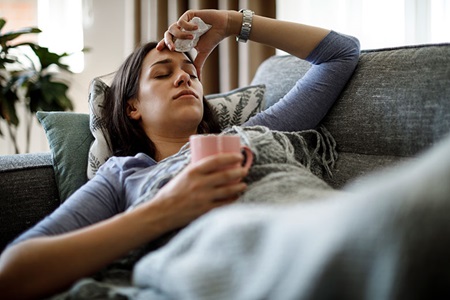Avoiding Nighttime Hypoglycemia
Nighttime hypoglycemia can be the result of a number of factors in people with diabetes. It is important to learn what causes hypoglycemia (low glucose) in order to prevent it from happening.
What Are the Causes of Nighttime Hypoglycemia
Having an active day or exercising close to bedtime with diabetes can lower glucose and cause hypoglycemic during sleep or overnight. Other factors that can put you at risk for nighttime hypoglycemia are too much basal (background) insulin or consuming alcohol in the evening. While your liver is busy clearing the alcohol from your blood it stops producing glucose putting one at risk for having a lower glucose level.
Some people forget that their premeal (fast-acting) insulin can last for up to five to six hours. If you eat a late dinner and go to sleep a few hours later, your glucose may be okay before going to bed. However, since the insulin you took for dinner is still working in your body, your glucose could drop during the night.
What Are the Signs of Nighttime Hypoglycemia
Signs that you’ve experienced nighttime hypoglycemia can include:
- Sweating: waking up with damp clothes/sheets
- Waking up with a headache
- Having nightmares
- Feeling unusually tired in the morning
- Waking up with a higher than usual glucose level
You may also wake up with a higher glucose reading, which is a result of your body rebounding from the overnight low glucose. Experiencing a fast heartbeat and anxiety before bed may be an indication of approaching hypoglycemia.
Ways to Avoid Nighttime Hypoglycemia
Check your glucose before going to bed. This could be either with your glucose meter or your continuous glucose monitoring device. Aim for a target of 90-150mg/dl. Know the signs and symptoms of nighttime hypoglycemia. Before you go to bed, consider all of the causes of nighttime hypoglycemia, and if you think you’re at risk, have a snack before heading to bed. Try to be consistent with your meals and/or snacks; skipping dinner or snacks you usually have can put you at risk. Eat a meal or snack when consuming alcohol.
You may need to reduce your predinner or evening/bedtime basal insulin following exercise. Be prepared, have rapid-acting carbohydrates like glucose tablets, juice or soda at your bedside. If you find yourself experiencing frequent nighttime hypoglycemia you may need to adjust your insulin doses. Speak to your diabetes care team about adjusting your insulin regimen or things that you can do to avoid hypoglycemia whether it be overnight or anytime during the day.
Although this content is reviewed by Joslin Diabetes Center healthcare professionals, it is not intended to replace the medical advice of your doctor or healthcare provider. Please consult your healthcare provider for advice about a specific medical condition.



